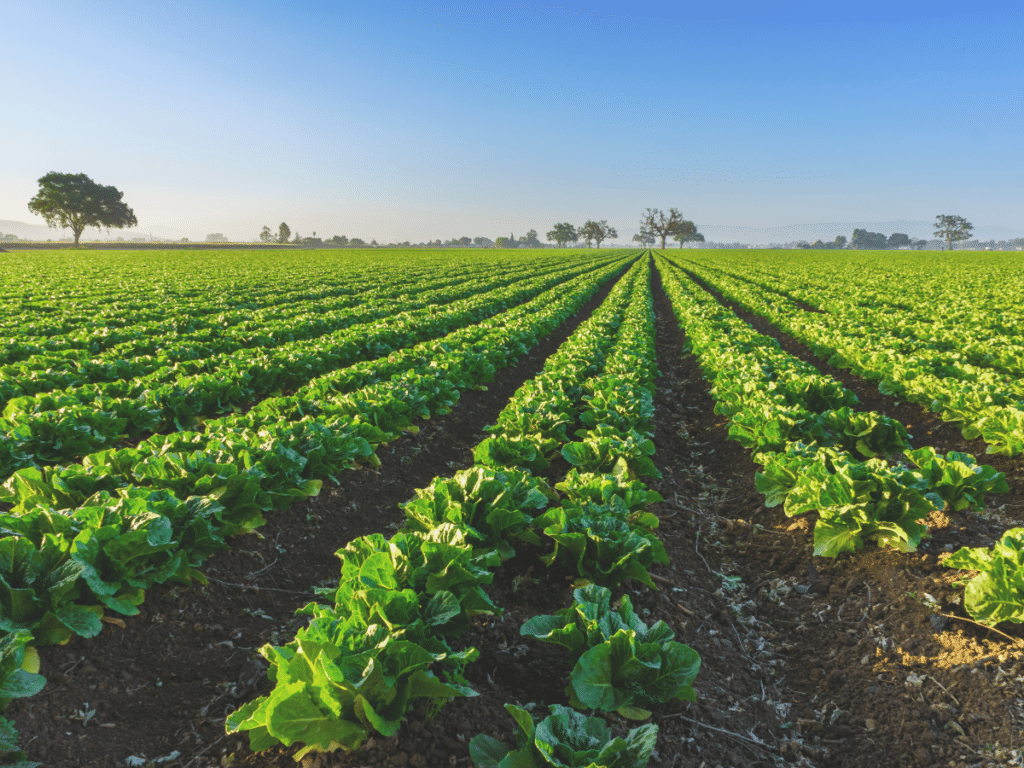This year, calls for food and farming to be firmly on the agenda at COP28 were stronger than ever. The role of the food system and agriculture in degrading soils, polluting freshwater, producing waste and so on is clear across the globe. Calls for new, more sustainable management practices are getting louder, with agroecology being a call to arms for many interested in nature-friendly farming. The potential for the food system to reverse this degradation is huge: many innovative solutions already exist for conserving water, sequestering carbon and better integrating and preserving biodiversity into farmed land. Ensuring that global policy not only recognises this, but actively supports it, will be critical for global food systems going forward.
Thankfully, COP28 finally had a dedicated food day, with the president committing to placing the adaptation of food systems as a priority during discussions. There were big expectations before the summit, with a joint statement being issued by the various UK farming unions calling on the UK Government to “support a sustainable and productive future for agriculture, growing our ability to produce climate-friendly food at the same time as…protecting nature and the planet”. As the statement sets out, many farmers across the UK are ready and willing to work towards alleviating the risks of extreme weather induced by climate change and moving toward more sustainable methods of production. The challenge comes in the form of policy and guidance – how can farmers be supported in this transition to ensure that they move toward resilience whilst ensuring financial security?
“It is vital that agriculture, land use, environmental and other policies are practical and properly funded, with a portfolio of measures for the diversity of farm types. It is by adopting a holistic approach to farming – considering food production, biodiversity, landscapes and communities alongside climate adaptation and mitigation – that will ensure a just transition to net zero farming in the future which leaves no farmer behind.”
– joint statement of Farming Unions, 2023
The Food and Agriculture Declaration
Day two of the summit saw a declaration on the future of food and farming, signed by over 130 countries. This explicitly recognises food systems and land use change as contributors to global environmental change and calls on countries to legislate and fund necessary changes in the food system. So what does it set out to do?
- Scale-up adaptation and resilience activities and responses to reduce the vulnerability of all farmers, fisherfolk, and other food producers to the impacts of climate change
- Promote food security and nutrition
- Support workers in agriculture and food systems, including women and youth, whose livelihoods are threatened by climate change
- Strengthen the integrated management of water in agriculture and food systems at all levels to ensure sustainability and reduce adverse impacts on communities
- Maximise the climate and environmental benefits – while containing and reducing harmful impacts – associated with agriculture and food systems by conserving, protecting and restoring land and natural ecosystems, enhancing soil health, and biodiversity, and shifting from higher greenhouse gas-emitting practices to more sustainable production and consumption approaches
Undoubtedly, this represents an important step toward recognising both the problems within the food system, and the means by which these can be overcome.
So what does this mean for the UK?
At present, how this agreement translates for UK farmers and landowners on the ground is not entirely clear. The agreement, though impressive as a first-of-its-kind global recognition, contains no legally binding targets or metrics – meaning the 134 countries that signed it must follow through on their own terms. That said, the UK does have a clear policy roadmap as it undergoes its own agricultural transition. Environmental Land Management (ELMs), England Woodland Creation Offer (EWCO), Nutrient Neutrality and Biodiversity Net Gain are all examples of policies that have to work in order for the UK to begin to meet its 30×30 targets and support farmers and land managers in the process. So long as rhetoric around policy materialises in clarity as well as efficient, effective delivery, the UK has much to be optimistic about. Food systems will change, simply because they have to. It is critical that land managers and agriculture are empowered in the right way to help steer this change, rather than left along the roadside of empty promises and a hollow policy framework.

